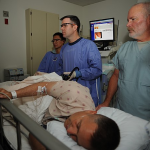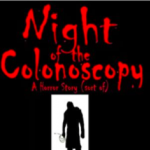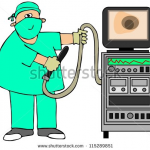The Fourth Turning and Complexity
Can a medication change our brain’s anatomy?
Are colonoscopies helpful?
Can the value of chicken soup be quantified?
colonoscopy
It is increasingly clear that Artificial Intelligence (AI) is going to transform our lives in myriad ways, from weather prediction to military planning and in innumerable medical applications. I recently encountered first-hand a new, significant advance – the use of AI to improve the detection of lesions during colonoscopies.
Few words strike terror into the heart of 50-year-olds more than "colonoscopy." True, it’s a procedure that most of us do not look forward to. But it's very important, and in reality, not really that bad. For you "colonoscopy virgins” here are a few words of encouragement.
Last week, it was colonoscopy time again. Oh, joy! But it gave me an excuse to look up alternate bowel preps – and it's a damn good thing I did. Which prep is the one to have? Which is best to avoid? It's not so easy to tell. As a bonus, here are some hilarious quotes.
No one looks forward to chugging a gallon of gag-inducing bowel-prep and spending hours running to the bathroom, all as a prelude to an even more pleasant experience involving a snaking tube and a camera. So if you're averse to a colonoscopy, here are other options you can consider -- albeit with some caveats.
Colonoscopies have been hailed as the hero for the decreasing the incidence and death from colon cancer. An essay, published in the New England Journal of Medicine, claims that other factors, not just colonoscopy screenings, are contributing to the decline.
The Canadian Task Force on Preventive Health recently published its new recommendations in CMAJ, coming out against the use of colonoscopies for colorectal cancer screening in low-risk individuals.
Screening for cancer may well reduce deaths from the cancer screened for but still not reduce (or even increase) overall mortality. That's the message in a recent BMJ meta-analysis of the harms and benefits of screening.
A New York City-based coalition of healthcare workers, physicians and community outreach specialists managed to increase the city's screening colonoscopy rate from an abysmal 42 percent in 2003, when the C5 coalition began, to an amazing 70 percent last year. A incredible boon for public health.
Vampires are living longer, which makes it necessary for them to undergo the same preventive screening measures that apply to the population as a whole.
A new study links long-term, continuous use of common painrelievers (NSAIDs and aspirin) to a reduced risk of colorectal cancer (CRC). This study does not prove a cause-and-effect benefit, and these drugs can cause bleeding, so discuss with your doctor.
Sixty-five percent of those diagnosed with invasive cancer during 2003 to 2010 survived for five years or longer after their diagnosis, according to a recent report from the CDC. This is an increase from 64 percent fr




